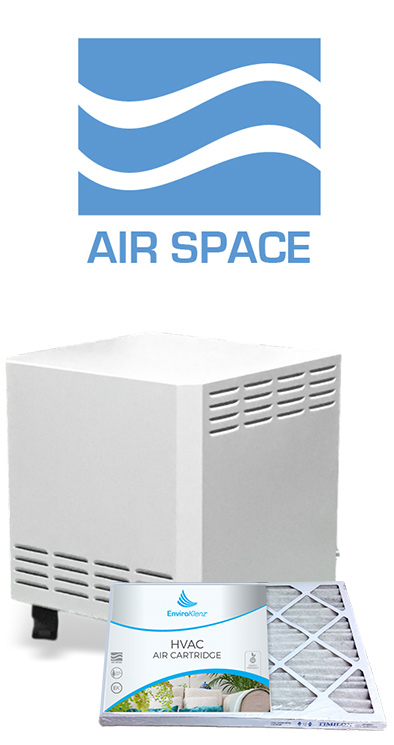 Both autoimmune disease and allergies can be classified as a hyper immune response. Hyper immune responses are characterized by the immune system attacking seemingly harmless substances in the environment. This is dangerous because the immune system can focus its energy on combating the perceived threat, resulting in symptoms like rash or inflamed sinuses. Times in which symptoms are present in result of these inflammatory responses are sometimes called “flare ups” or simply “flares”.
Both autoimmune disease and allergies can be classified as a hyper immune response. Hyper immune responses are characterized by the immune system attacking seemingly harmless substances in the environment. This is dangerous because the immune system can focus its energy on combating the perceived threat, resulting in symptoms like rash or inflamed sinuses. Times in which symptoms are present in result of these inflammatory responses are sometimes called “flare ups” or simply “flares”.
Allergy flare-ups have a few major differences from autoimmune flares.
So, what’s the difference?
The easiest way to tell if you might be experiencing allergy symptoms or that of an autoimmune disease is to pay attention to the triggers of your flare up episodes. Allergies respond to external factors such as dust or pollen that the immune system sees as an attack on the body. Autoimmune conditions, however respond to internal triggers that the immune system mistakes as a foreign substance, even though they are normal and essential in the body’s function. In Lupus patients, for example, certain organs including the lungs, brain, heart, blood vessels, or nervous system get attacked by the immune system, resulting in different symptoms such as a butterfly rash (a rash across the bridge of the nose and the cheeks), sunlight sensitivity, fever, inflammation of the joints, etc.
Technically speaking, the reactive mechanisms in the body are very different as well when comparing an allergic reaction to an autoimmune flare up. The specific immunological pathways activated in an allergic reaction to release histamine, are different from the pathways in which an autoimmune response is triggered.
The last major difference between autoimmune diseases, and allergies involve the environmental substances that trigger a flare-up. Allergen triggers can be readily identified with lab tests, and treatments can be effectively determined. In autoimmune conditions, there is not yet a complete understanding of the diseases, making it much harder to diagnose and treat. As a result, the treatment plans for patients with an autoimmune disease tends to be much more broad, in order to cast a wide net over the different functions of the body that may be reacting or responsible.
Are They Caused by the Same Thing?
Although both conditions are a result of mistaken immune responses, the triggers are very different. As recently as the last few decades, researchers have started to uncover previously mysterious commonalities between autoimmune diseases and allergies. One commonly accepted hypothesis is the “hygiene hypothesis.” This assumes that as medicine and sanitization methods have advanced, people have become too clean, getting rid of necessary protective bacteria and viruses, without understanding their importance to the immune system. This theory has been proven through the examination of bacteria in third world countries. In these countries with less focus on hygiene, there are far less allergies and autoimmune diseases present. The Clinical & Experimental Immunology journal published this article (https://www.ncbi.nlm.nih.gov/pmc/articles/PMC2841828/) explaining that over time we have eliminated all traces of necessary bugs with the misunderstanding that all bacteria are harmful. In turn, our immune systems don’t have enough targets to fight against, and turn against itself to keep busy.
Interestingly, a new gene has been identified called BACH2 that scientists believe to be the blueprint of both allergic reactions and autoimmune flare ups.
Do Different Seasons Flare Up Autoimmune Diseases?
The link between different seasons and allergies is commonly known and accepted. Many allergy sufferers experience worsened symptoms during the springtime when pollen is floating through the air. Some researchers have studied the link between autoimmune reactions and seasonal triggers. More compelling are testimonials from patients online that clearly indicate the connection. In some cases, for example, some pregnant women experience severe allergic reactions and develop autoimmune thyroid diseases after their pregnancy.
As suspicions develop regarding a link between environmental factors and autoimmune diseases, studies will continue to be conducted and every aspect of the link explored. Although it might not yet be accepted by everyone in the medical community, the link is clear through the personal stories of sufferers that detail their experiences online. The evidence can’t be ignored and actions should be taken to alleviate autoimmune flare ups.
What Helps Me in My Battle Against Flares?
I’ve been on a 16 year mission to decreasing the amount of flare ups I have, both allergic and autoimmune. I’ve found removal of hazardous pollutants from the air is an important application area with significant impact on my health and quality of life. Dust is a major allergy trigger for me. In fact, dust mites came up so high on my allergy testing, my allergist told me it could trigger an anaphylactic response and I need to take medicine before cleaning. Seriously, who wants to take more medicine just to clean the house?
And so, I’ve searched high and low for quality air filtration systems that actually work. The majority of air systems only focus on particle filtration. These devices may use a combination of traditional MERV rated filters and HEPA filtration. HEPA filtration does a good job of removing particulates, but it does not address chemical pollutants and odors, which serve as triggers for those with allergies, multiple chemical sensitivities, and auto immune diseases.
 The best air purifier for lessening autoimmune symptoms is a unit that not only removes the larger particulates from the air with a HEPA filter, but one that also removes any chemical and toxic substances that might be floating in the environment as well. I’ve tried a few different purifier over the years, but the unit I am loving is my EnviroKlenz Mobile Air System.
The best air purifier for lessening autoimmune symptoms is a unit that not only removes the larger particulates from the air with a HEPA filter, but one that also removes any chemical and toxic substances that might be floating in the environment as well. I’ve tried a few different purifier over the years, but the unit I am loving is my EnviroKlenz Mobile Air System.
Let’s quickly break down the system for all of my LupusChick’s who love information…
The EnviroKlenz technology holds 20+ patents in the destructive adsorption of chemical odors and VOCs and unlike carbon air purifier, which works by trapping and storing the chemical pairing agents at the media of the filter. The EnvirKlenz mobile system works to absorb and neutralize the chemical odors and malodors from your indoor environment while filtering out particulates such as dust and dander of up to . 3 microns
The EnviroKlenz® technology have proven to be highly efficient “destructive adsorbents” for VOCs making them not only competitively advantageous, but very attractive in multiple for those with auto immune diseases, environmental illnesses, allergies, and respiratory illnesses. When the EnviroKlenz materials come into contact with harmful odor-causing chemicals, the metal oxides’ active sites first capture the chemical then initiate the neutralization process.
Other important facts to know about the unit:
- An easily installed EnviroKlenz-Air Cartridge contains a proprietary blend of materials to neutralize odors, chemicals, gasses, Volatile Organic Compounds (VOCs), and larger particulates. Covers up to 950 square feet – this is a massive area!
- A multi-speed blower offers the quiet and efficient airflow. The low setting allows for near silent operation while still maintaining odor elimination. Medium to High speeds creates maximum air efficiency at noise levels still suitable for residential and commercial use.
- Affordable maintenance costs.
- No tools are required for unit maintenance.
What About Chemical Sensitivities and Fragrance Allergies?
EnviroKlenz doesn’t just make incredible air purifiers – they also focus on products for fragrance allergies, mold allergies, chemical sensitivity, laundry products for those of us with overactive immune systems and more.
Get more information on all of EnviroKlenz products here.
Let me know if you have any questions, and stay tuned as we are going to announce our giveaway for a FREE EnviroKlenz air unit for Lupus Awareness Month very soon!

The opinions expressed in this article about the Enviroklenz unit are my own, drawn from personal use. This post does contain affiliate links – any compensation derived from these links help me keep LupusChick going. Thanks!


Hi! My sister and I both have lupus. Both sle, both w kidney involvement. But both very diffrnt.
My comment, or question rathr, is about severe sun allergy (not sensitivity) associated w lupus. My sister has it. Its so severe tht all our drs dont know what to do for her. Shes tried just about everything. She simply CANNOT be in any sun or certain lighting, if she is she goes straight into anaphylaxis and is sick in bed for days- like almost death bed. She stopped evn trying to go to the ER as thy do absolutely nothing for her- cause they dont know what to do. She just got a referral to see a dermatologist- so well see frm there, but do u have any suggestions or what did you do to help w yours? Is yours this bad? Its very scary. I feel like Im going to lose her 1 day, just from going outside. She has 5 kids!
TIA!! Hugs!!
Hi Theresa! Thanks for writing. A high proportion of lupus patients deal with sun and heat sensitivity and it sounds like your sister definitely has this as well. I am curious if she has ever seen an allergist for the issue as it does seem severe the way you are describing it. Because she is having a major immune reaction, I am curious if an allergist or rheumatologist can shed any light on the matter. Typically I get sick after being in the sun after 10 minutes or so but for me it is a fever, rash, mouth/nose sores and heart palpitation (everyone is different). I do some work with Coolibar with is a clothing company that has SPF50 in all of its clothing and blocks out the sun rays, which may help her to an extent (though I still wouldn’t be directly in the sun). Some people do have extreme allergies – even to benign things like water, or sun – which is why I would definitely seek out an experienced allergist asap and go from there. Emergency rooms aren’t equipped for things like this (though they can with analphyaxsis), but she sounds like she needs a deeper workup from experienced allergists and you typically won’t find that in the ER. So I totally understand her not wanting to even go back there!
Question…You have an allergist…Did you or are you receiving allergy treatment via shots or sublingual? Would you recommend that route?
Hi Tracy – Yes, I have a great allergist who has helped me determine allergies through blood and skin tests. UNfortunately she does not feel comfortable giving me allergy shots because I get extreme reactions and also have something called Chronic Urticaria on top of a gazillion allergies but I know a lot of people who do get them and they have really helped!!